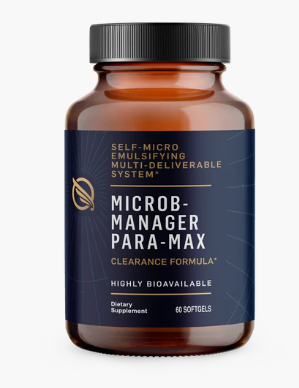Multiple Sclerosis Treatment
Living with Multiple Sclerosis (MS) presents unique challenges, but it’s important to remember that you’re not alone. At Five Journeys, we understand the complexities of this condition and offer a supportive environment where you can find compassionate care and personalized multiple sclerosis treatment. Our team of experienced practitioners is dedicated to helping you manage your symptoms, improve your quality of life, and approach your wellness journey with renewed hope. We believe in empowering you with knowledge and tools to navigate the challenges of MS while focusing on your overall well-being.
Key Takeaways
- Multiple Sclerosis (MS) is a chronic autoimmune disease where the immune system attacks the protective myelin covering nerves, disrupting communication between the brain and body and causing symptoms like fatigue, vision issues, muscle weakness, and cognitive changes.
- There are several types of MS, including relapsing-remitting (RRMS), secondary progressive (SPMS), primary progressive (PPMS), progressive-relapsing (PRMS), and clinically isolated syndrome (CIS), each requiring tailored treatment approaches.
- Early treatment is critical in starting MS care soon after diagnosis can slow disease progression, reduce relapses, preserve brain and spinal cord function, and maintain independence and quality of life.
- Lifestyle changes and self-care matter, regular exercise, balanced nutrition, sleep, and stress management can reduce symptom severity and enhance overall well-being.
- Five Journeys offers a personalized, holistic approach to MS treatment, combining functional medicine with conventional therapies, nutrition planning, and lifestyle support to address root causes, not just symptoms.
- While there is no known cure, effective MS treatment can help manage the disease, minimize long-term disability, and empower individuals to lead fulfilling lives.
What is Multiple Sclerosis?
Multiple Sclerosis is a chronic autoimmune disease that affects the central nervous system, including the brain, spinal cord, and optic nerves. In MS, the immune system mistakenly attacks nerve fibers’ protective covering (myelin), causing inflammation and damage. This disrupts the communication between the brain and the rest of the body, leading to a range of symptoms including:
- Fatigue
- Numbness and tingling
- Muscle weakness
- Vision problems
- Balance difficulties
- Cognitive changes (problems with memory, thinking, or concentration)
The severity and progression of MS vary greatly from person to person.
Types of Multiple Sclerosis
Multiple sclerosis can manifest in various forms, each with its own characteristics and progression patterns. Understanding the different types of MS is important in determining the most appropriate treatment for MS and management strategies.
Relapsing-Remitting Multiple Sclerosis (RRMS)
This is the most common way multiple sclerosis is diagnosed, affecting about 85% of people with MS. RRMS involves distinct attacks where new symptoms appear or existing ones worsen. These attacks are followed by periods of partial or complete recovery (remissions). During these recovery periods, symptoms might disappear completely, or some lingering effects may remain. A recent study found that medications like interferon beta and glatiramer acetate can help reduce how often these attacks happen and how severe they are. This means that while there isn’t a multiple sclerosis cure yet, there are ways to manage the disease and improve quality of life.
Secondary Progressive Multiple Sclerosis (SPMS)
SPMS often develops after an initial relapsing-remitting course. In this type, the disease steadily progresses, sometimes with occasional relapses, minor remissions, or plateaus. This gradual worsening of neurological function can lead to increasing disability over time. A study in the journal Neurology showed that for people who don’t receive treatment, it takes about 20 years, on average, for relapsing-remitting MS to transition into SPMS. This highlights how important early multiple sclerosis treatment can be in potentially delaying this progression and preserving brain and spinal cord function.
Primary Progressive Multiple Sclerosis (PPMS)
PPMS is characterized by a gradual worsening of neurological function from the onset, without distinct relapses or remissions. Approximately 15% of individuals with MS receive this multiple sclerosis diagnosis. While the progression may appear continuous, there can be periods of temporary improvement or plateaus. Studies suggest that PPMS might be triggered by a combination of things, including genes and exposure to the Epstein-Barr virus (EBV), which causes mononucleosis. This highlights the complexity of PPMS and the need for ongoing research to better understand and treat this particular form of MS disease treatment.
Progressive-Relapsing Multiple Sclerosis (PRMS)
PRMS is a rare form of MS marked by a steady worsening of neurological function from the beginning, with superimposed relapses. Recovery from these relapses may be incomplete, leading to a gradual accumulation of disability. Because it’s less common, it can be tricky to diagnose and manage. A study found that PRMS can actually look a lot like PPMS, which makes it even harder to tell the two apart. This highlights the need for healthcare professionals to carefully evaluate and monitor individuals experiencing symptoms of PRMS to ensure they receive the appropriate multiple sclerosis treatment.
Clinically Isolated Syndrome (CIS)
CIS is the first episode of neurological symptoms that lasts at least 24 hours and is caused by inflammation and damage to the protective covering of nerve fibers in the central nervous system. While CIS can be an indicator of MS, not everyone with CIS will develop MS. A multiple sclerosis diagnosis requires further evaluation and monitoring. A large study found that the presence of certain proteins in the spinal fluid, the number of lesions seen on an MRI, and younger age at the time of the CIS episode all increase the likelihood of developing MS. This highlights the importance of careful monitoring and early multiple sclerosis treatment for individuals who experience CIS.
Interested in Multiple Sclerosis Treatment? Ask your provider or book a call with us!
Lifestyle Changes and Self-Care for MS
Alongside your medical treatment, healthy lifestyle choices and self-care practices can make a real difference in managing multiple sclerosis. Here’s why:- Regular exercise: Staying active helps improve your strength, balance, and coordination. It can also reduce fatigue and boost your mood. Research shows that exercise can even help protect your brain and spinal cord from further damage. Aim for a mix of activities you enjoy, like walking, swimming, or yoga.
- Balanced nutrition: Nourishing your body with a healthy diet supports your overall well-being. Focus on whole foods like fruits, vegetables, and whole grains. These provide important nutrients and antioxidants that can help reduce inflammation.
- Stress management: Stress can sometimes make MS symptoms worse. Finding healthy ways to manage stress is key. Try techniques like meditation, yoga, or spending time in nature. These can help calm your mind and improve your emotional well-being.
- Adequate sleep: Getting enough quality sleep is essential for managing fatigue, a common MS symptom. Aim for 7-8 hours of restful sleep each night. Establish a regular sleep schedule and create a relaxing bedtime routine to improve your sleep quality.
Benefits of Early Multiple Sclerosis Treatment
Early initiation of MS disease treatment is crucial in managing MS and improving long-term outcomes. Here’s why:Slows Disease Progression
Starting treatment early can help slow the progression of MS and reduce the frequency and severity of relapses. This can help preserve neurological function and delay the accumulation of disability.Preserves Brain and Spinal Cord Function
By reducing inflammation and damage to the central nervous system, early treatment can help protect the brain and spinal cord. This can contribute to maintaining cognitive function, mobility, and overall independence.Minimizes Long-Term Damage
Early intervention can help minimize the accumulation of lesions and damage in the brain and spinal cord, which can lead to irreversible disability.Improves Quality of Life
Multiple sclerosis treatment aims to manage symptoms, reduce the impact of relapses, and improve overall quality of life. This allows individuals with MS to maintain their independence, engage in meaningful activities, and live fulfilling lives.Reduces the Risk of Transitioning to Progressive MS
In some cases, early treatment may help delay or reduce the risk of transitioning from relapsing-remitting MS to secondary progressive MS, which is associated with a more steady decline in neurological function. A study found that those who started treatment sooner after their diagnosis had significantly less disability in the long run. This highlights how important it is to begin multiple sclerosis treatment early on, as it may help slow down the progression of the disease and preserve your ability to function independently.Our Approach to Multiple Sclerosis Treatment
At Five Journeys, we take a holistic and personalized approach to multiple sclerosis treatment. We believe in addressing the root causes of your condition, not just managing symptoms. Our functional medicine approach, combined with holistic medicine for MS, involves:- Comprehensive evaluation: We conduct thorough assessments to understand your unique health history, lifestyle, and individual needs.
- Personalized treatment plans: We develop customized treatment plans that may include a combination of conventional and complementary therapies.
- Focus on lifestyle factors: We emphasize the importance of lifestyle modifications, such as diet, exercise, and stress management, to support your overall health.
- Ongoing support and education: We provide ongoing support and education to empower you in your journey with MS.
Why Begin Improving Your Health with Five Journeys?
At Five Journeys, we offer a unique and supportive environment for individuals seeking management of multiple sclerosis. Our experienced practitioners are dedicated to providing compassionate care and personalized treatment plans. We believe in empowering you with knowledge and tools to navigate the challenges of MS and improve your overall quality of life. Our focus on functional medicine and holistic care sets us apart, as we address the root causes of your condition and support your well-being on all levels.
Holistic Approach
At Five Journeys, we recognize that true wellness encompasses more than just physical health. We take a holistic approach that considers all aspects of your well-being, including physical, emotional, mental, and spiritual health.
Personalized Care
We understand that each individual is unique, and their health needs are different. That's why we tailor our services to meet your specific needs and goals. Whether you're seeking preventive care, managing chronic conditions, or optimizing your overall health, we provide personalized solutions that prioritize your well-being.
Insurance Accepted
While there is currently no multiple sclerosis cure, there are many effective treatments and strategies to manage the disease and improve quality of life. At Five Journeys, we offer a comprehensive and compassionate approach to multiple sclerosis treatment in Boston and Newton, focusing on your individual needs and empowering you to live your best life possible. Many people hope for a natural cure for multiple sclerosis, and while that’s not something we can offer, we can provide support through holistic medicine for MS and functional medicine. We aim to help you manage your condition and live a fulfilling life.
*Massachusetts law does not allow us to accept MassHealth & Medicaid. Other exceptions may apply.
Why we do, What we do...






























